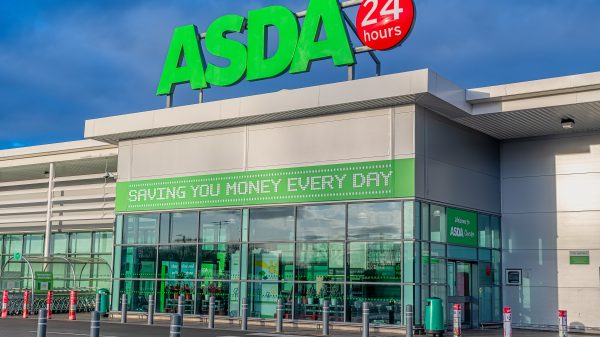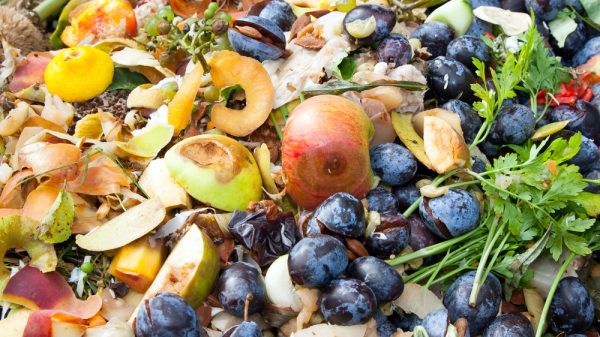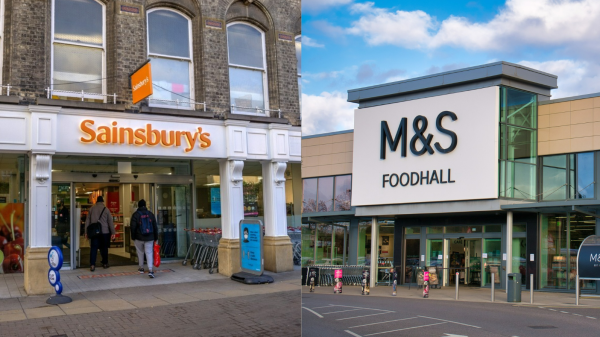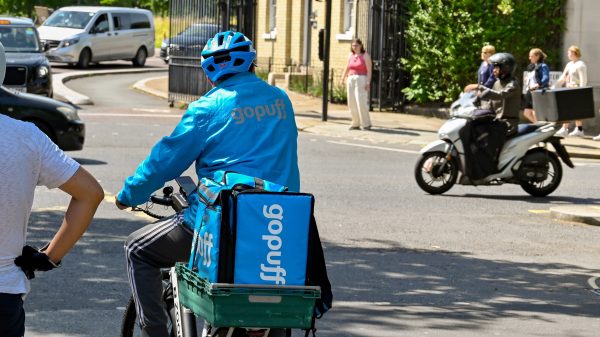Struggling businesses and households across the UK will be listening intently when chancellor Rishi Sunak reveals his spring statement next Wednesday, as the cost-of-living crisis continues.
With surging energy bills, food costs, National Insurance and inflation outstripping any rises across benefits, wages or pensions, the statement will see Sunak reveal the true scale of the situation.
Businesses are calling on Sunak to ditch the government’s ‘business-as-usual approach’, unions are demanding a windfall tax and politicians across the party spectrum are pushing for a National Insurance tax reversal; all ramping up pressure to announce extra help for UK households.
Through all this noise it is clear the chancellor’s decisions will be watched closely. Here’s a breakdown of what’s expected to come and how it will impact grocery sector employers, employees and consumers.
READ MORE: Food inflation could soar to 15% by mid-year following Ukraine invasion
UK inflation to rise over 8%
Next Wednesday, Sunak will announce the Office for Budget Responsibility (OBR)’s expected rate of inflation.
Pitched at an average of 4% back in October 2021, OBR forecasts at the time predicted less economic “scarring” than had been feared, despite Brexit and Covid-related impediments.
However, this spring, inflation has more than doubled the OBR original estimation. Inflation was predicted to peak at 8.3% just last week, exceeding the Bank of England’s forecast of 7.25%.
The industry is watching closely and many are concerned it could rise even higher, such as 2 Sisters Food Group CEO Ronald Kers, who warned that the war in Ukraine could exacerbate the situation, leading to a 15% increase by summer.
At the same time, the chair of Waitrose, Sharon White, predicted inflation figures could hit “double-digits” due to “energy prices from the impact of the Ukraine war”.
If Sunak doesn’t intervene to adequately fund social security and energy bills, the increasing food prices impacted by rapidly growing inflation will hit low-income families and workers the hardest.
READ MORE: Food sales growth impacted by inflation
Household incomes and the cost-of-living crisis
With household incomes expected to plummet, calls for government intervention have been widespread. Prime Minister Boris Johnson is expected to “demand short-term help for families facing higher fuel and food prices,” as the cost of food has soared by the fastest rate since 2011.
Currently, Sunak’s budget includes a 3.1% increase in benefit payments. Anti-poverty food campaigner Jack Monroe recently posted on Twitter, stating that every witness at the DWP Committee advised the government to raise benefits to 8% in line with the “true cost of inflation”.
Every single witness on the panel at the DWP Select Committee have individually advised that the Government need to uprate benefits in line with the true cost of inflation (around 8%) not the 3.1% tabled for the Spring Budget. Unanimous agreement = this is clearly very important.
— Jack Monroe (@BootstrapCook) March 9, 2022
In February, Ofgem said that Sunak’s current £9 billion package to help with surging costs of energy bills would only offset half the rise. In addition, the conflict in Ukraine is expected to force those prices up to five times higher, putting immense pressure on thousands of households who are already reducing basket sizes or swapping to discount retailers.
Currently one in three UK shoppers opt for Lidl and 40% shop at Aldi as the discounters continue to outperform the Big 4 in terms of affordability.
To help ease this pressure, Trades Union Congress general secretary Frances O’Grady has urged the chancellor to fund emergency grants and home insulation with “a windfall tax on excess energy profits.”
While it’s unlikely Sunak would levy an additional tax on energy and oil firms, the spring statement could see him giving flat-rate payments to a large number of households, easing some of the pressure from inflation and rising costs. The IFS believes this would cost more than £12 billion.
Alternatively, the chancellor could direct financial support towards those least able to absorb the rising costs, such as low-income families and those on Universal Credit.
READ MORE: Discounters arise: can Aldi break into the Big 4?
National Insurance Tax hike
The Chancellor’s National Insurance (NI) tax hike of 1.25% – due to come into force in April – has been contested by unions, Labour and Conservative party members and business organisations alike. Coupled with rising food prices at 5.4% and the steepest decline in real wages for eight years, the NI hike will hit low-paid workers who are already struggling to make ends meet.
Retail union Usdaw deems the NI hike to be “the wrong policy and the wrong time”, with over three-quarters of its members saying they are already financially worse off than last year.
The British Chambers of Commerce (BCC) director general Shevaun Haviland also remains unconvinced. He believes the tax increase will “drag an anchor on the economy, landing significant costs on firms when they are already facing a raft of other cost pressures.”
Former PM Gordon Brown and 70 Labour MPs have called on the government to tax oil companies, capital gains or inheritance rather than low-paid workers, while Brexit opportunities minister Jacob Rees-Mogg stated that “finding the savings would be more frugal and responsible” than raising taxes.
Despite this cross-party pressure, it’s unlikely Sunak will scrap or delay the rise in NI tax. According to the Institute of Fiscal Studies (IFS), even just a one-year delay – although fiscally manageable – would be expensive, as the NI tax is expected to raise around £13 billion.
According to the Financial Times, the chancellor fears injecting money “artificially” into the economy by removing the proposed NI rise would “push inflation even higher”.
If Sunak chooses to go ahead with the hike in NI, Conservatives predict he will shift the budget towards supporting low-income families and households with energy and fuel costs.
READ MORE: National Insurance increase to hit retail industry, Usdaw warns
Cost-of-doing-business crisis
Uncharacteristically, many companies have called for greater state intervention as the rising cost of raw materials and lack of consumer confidence pose a significant threat to businesses.
Many of the commodities needed in food manufacturing have already taken a hit, with the soaring costs of metals expected to increase the price of canned goods rise in the UK.
The National Farmers’ Union warned last week that the rising cost of producing fruit, vegetables and meat could mean farmers will be producing less, while the Agriculture and Horticulture Development Board revealed that UK wheat prices have soared by 39% this month.
As the cost of food production continues to rise, these increases will inevitably and disproportionately fall on the consumers.
The Federation of Small Businesses (FSB) focused on the chancellor’s decision to avoid implementing “damaging tax hikes” for businesses.
“He rightly talks about the need to invest in capital, people and ideas,” said FSB national chair Martin McTague. “However, that investment cannot happen so long as surging operating costs are depleting cash reserves and disposable incomes.”
At the same time, the BCC has called for a ”five-point-plan’, including a one-year delay to the NI rise and a temporary price cap for small businesses.
“A business-as-usual approach from the chancellor simply won’t cut it,” said Haviland.
“Business confidence is on the floor… The cumulative effect of rising raw material costs, soaring energy bills and other overheads is causing many firms to take cost reduction measures [and] weighing down on their ability to invest, recruit and grow.”
READ MORE: Food sector growth to ‘deteriorate’, FDF warns
What is to come?
The economic impasses of adapting to post-Brexit policy, the effects of Covid-19 and the war in Ukraine have culminated in a deadlock for food businesses, low-paid retail workers and consumer households alike.
This year’s spring statement – usually a small-scale update – will now determine business rates for food producers, taxes for struggling workers and benefits for consumers.
Party politics aside, the chancellor must take the opportunity to utilise public spending to alleviate the costs of food production, consumer goods and benefits before its too late.
Click here to sign up to Grocery Gazette’s free daily email newsletter










